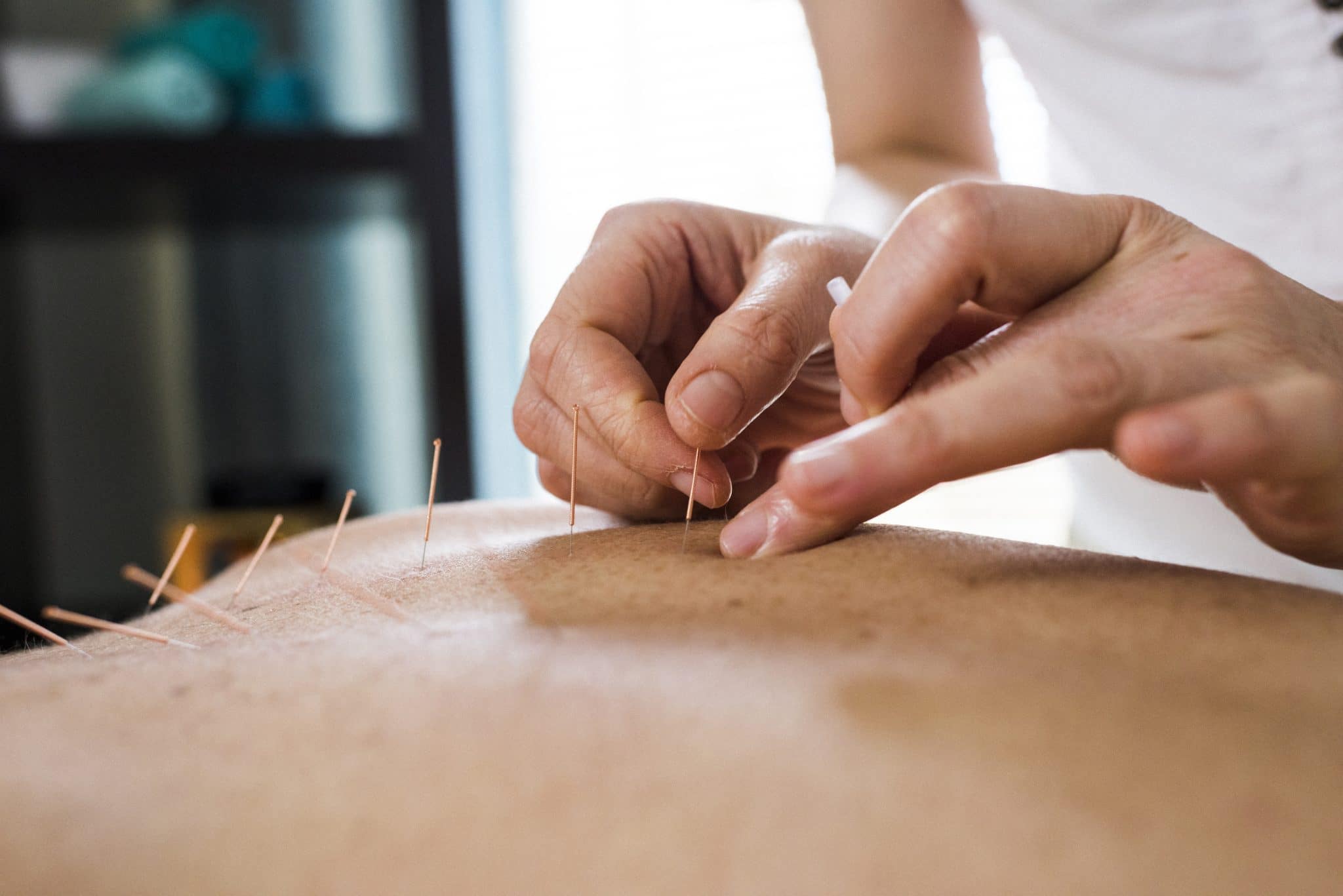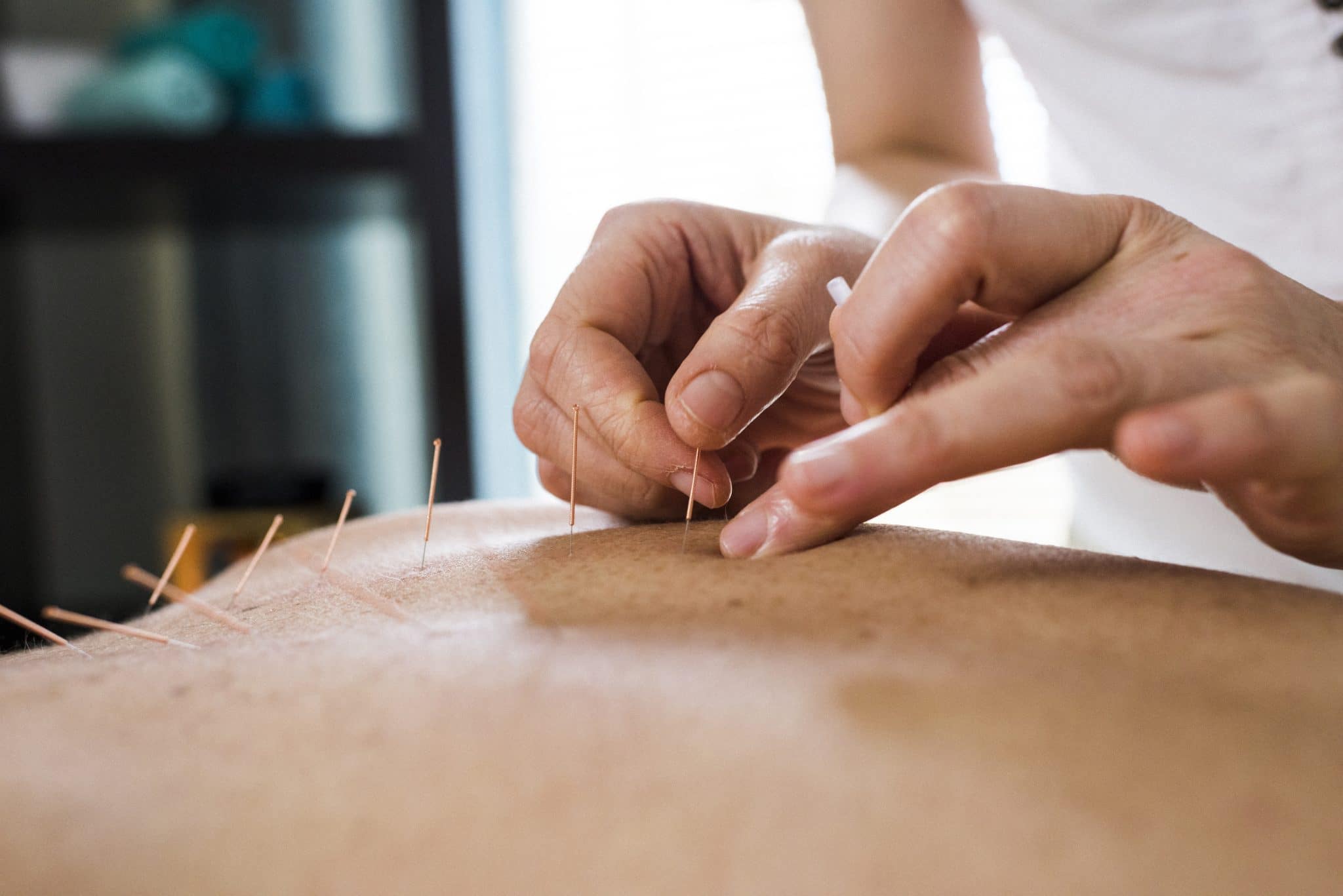On this week’s episode
- Michael Dabrowski describes his second career as an acupuncturist.
- As a licensed practitioner, Michael runs his own practice and explains the ins and outs of alternative medicine as it pertains to acupuncture, including why people come to see him and what an acupuncture clinic is like.
- He shares how he got into healthcare after a career in software.
- Note: Michael shares that he obtained a four-year Master’s degree, but many schools require three years instead. Visit the Accreditation Commission for Acupuncture and Oriental Medicine website for a full list of accredited and pre-accredited acupuncture degree programs.
About the show
You Have a Cool Job is a podcast hosted by Taylor Sienkiewicz from Peterson’s. The show highlights professionals who have a unique, interesting, uncommon, or otherwise cool job.
Our goal is to motivate you and show how interesting, fulfilling, and anything-but-average your career can be, and we’ll do this by talking with people who took a path less traveled. We ask these fascinating individuals how they got to where they are in their career based on their education, experience, and influences; why they love their job; and lots more.
Want more?
If you like what you’re hearing, check out these resources to get plugged in.
For more episodes of You Have a Cool Job, visit our YouTube channel. View other podcast blogs here.
Subscribe to receive an email containing each podcast episode of You Have a Cool Job as they’re released.
Learn more about Michael’s work and practice here.
Have a nomination for the show? Drop a line here.

Episode 6 Transcript
HOST SHOW INTRO: Welcome to the show! From Peterson’s I’m Taylor Sienkiewicz, and you’re listening to “You Have a Cool Job”, a podcast highlighting those who took their profession in a unique direction, and what they did to get there.
THEME MUSIC
HOST INTRO: On today’s episode of “You Have a Cool Job”, we talk with Michael Dabrowski, an acupuncturist who runs his own clinic. Acupuncture is a technique that uses very small needles to stimulate the bodies ability to heal itself. Originating in China, acupuncture has become more and more prevalent in the United States.
HOST: Michael, I guess my first question for you then is what does your day to day job entail?
MICHAEL DABROWSKI: My day to day job entails…so much is involved but essentially showing up to the clinic and receiving patients either patients who have just called in or walk-in patients or long-standing patients and then conducting an interview with them to find out how they’re doing, what are their main health concerns, and then conducting a treatment plan and working with either acupuncture needles or herbs or supplements or also potentially referrals for mental healthcare or blood screenings and whatnot. So, quite a lot is involved but essentially I’m working with each patient individually to find out what the root cause of their health condition is and using natural and alternative mechanisms in order to help them achieve their goals.
HOST: Interesting, and what do people usually come in to see you for?
MICHAEL DABROWSKI: I get a lot of people with back pain, back and shoulder pain, but also with irritable bowel syndrome, Crohn’s disease, anxiety and depression. I also get individuals who want to get pregnant or who want to have fewer symptoms while they are pregnant because a lot of pregnant women have morning sickness or things like that. But, it’s mostly I’d say muscular/skeletal conditions, and also some autoimmune conditions, as I said like Crohn’s disease or digestive problems.
HOST: As for treatment plans to these ailments, Michael’s approach and method is unique from what westerners typically see in their healthcare.
MICHAEL DABROWSKI: Treatment plan is unique for everybody, like if I have ten people coming in for a headache, they’re not going to receive one standard treatment, there’s going to be ten separate treatments because the cause of why this one individual is having a headache may be completely different from somebody else. So, I spend a lot of time digging into the history like when did the headaches start, what’s their diet like, what are their stress habits, their work habits, their family health history, etc. And look kind of at the big picture of what else is going on in their health of what could have started the headaches.
HOST: So that would be what you do that’s different from maybe a general doctor?
MICHAEL DABROWSKI: Yeah, a general doctor may be looking at the headaches and the first treatment of choice would be to prescribe something like Tylenol or some kind of pain reliever to make the headaches go away and maybe figure where are they coming from, whether they’re stress headaches and whatnot but that’s usually much more of a cookie-cutter, symptom-based approach to just treating the symptom. Now, obviously if you’re working with a good western doctor they’re going to probably be asking you questions to try and figure out, you know, could this potentially be something more dangerous but few doctors actually have the time to actually look at that.
HOST: On the contrary, acupuncture clinics are run completely differently than a doctor’s office.
MICHAEL DABROWSKI: In an acupuncture clinic you’re working with someone for a full hour and during that time you get to ask a lot more in-depth questions and track down the root cause.
HOST: A huge component of western healthcare is pharmaceutical and off-the-shelf drugs. Michael explained that while these may treat symptoms or help temporarily, this usually does not solve a patient’s problems.
MICHAEL DABROWSKI: You’re a unique individual so you can’t just have one off-the-shelf product treat that condition. So, you know you may get lucky and that might help you. Very often that might help you for a little bit, maybe for a week, or a whatnot but the problem never goes away until it’s fully addressed.
HOST: And that seems to be kind of a trend in our society in general is just more customization. So, do you feel like there’s been more of a shift towards that type of well-being and medical care?
MICHAEL DABROWSKI: I think that’s definitely happening more and more, especially as integrative care is sort of the buzzword, that’s coming up more and more these days and patients are starting to expect a little bit more that doctors spend more time with them and also recommend other non-surgical and non-medication options for certain conditions that they’re going for. I think it’s definitely a trend to personalize healthcare rather than this cookie-cutter, one treatment for everybody way of doing things. So, acupuncture is a great way of personalizing your healthcare because you do get to spend so much time with your practitioner and you get to really look at questions surrounding your health that you’re not going to get to look at with a regular doctor’s visit.
HOST: Michael said that one of the most rewarding parts of his job is to see patients make changes in their lifestyle as they start to understand different ways they can take care of their health and conditions.
MICHAEL DABROWSKI: I get to see a patient from week to week putting in place different strategies to look after themselves at home and kind of solve their own problems. Very often when I provide a treatment, the symptoms might go away right there in the session, but it’s really the work that the patient does in their own lives looking at their habits and looking at changes in their diet, their exercise routines, and kind of helping to coach them along the way that is really the most rewarding because that’s when patients really graduate from receiving treatment to actually being in control of their own healthcare and for me, having individuals have healthcare independence is very important so that’s really rewarding.
HOST: Right, I guess though, something that I would think about with that is that somebody who would come to an alternative type of medicine clinic is probably already taking charge or their own healthcare so they even have that coming into it as well.
MICHAEL DABROWSKI: Yeah, a lot of people that come to me are actually fairly desperate, they’ve already gone to western medical doctors and really I am the last resort and so they’ve tried different pills, the doctor might be saying oh you need surgery, we might need to cut something out of you, and so at that point, once you do that you can’t put that part back so they’re looking at anything that could potentially make a difference for them.
HOST: Many patients come to Michael as a last resort, but he advises that people be proactive about treatment earlier on.
MICHAEL DABROWSKI: I mean we always hear that prevention is better than the cure and it’s always better to seek acupuncture and other alternative healthcare like massage and acupressure or herbs, much sooner, so I definitely advise people that when they notice any kind of first symptom that they come in and have us take a look at that symptom because a symptom is usually a warning light like when you have a gas light on in your car, driving down the road, the gas light tells you, oh, something needs to be addressed in this car. So, I try to encourage patients to come in when they first see symptoms because we can fix it a lot easier then rather than when it becomes chronic and something that they’ve been dealing with for many, many years, then that can take much longer to address so the earlier the better.
HOST: And what is an aspect of your job that people don’t think about or realize is part of being an acupuncturist?
MICHAEL DABROWSKI: Part of being an acupuncturist is you’re wearing many hats. Not only are you a doctor and working with the healthcare aspect, you’re also a business person and running your own clinic and have to think about marketing, about business development, and also as you grow as you get other staff, you have to think about managing your staff and messaging and promotion so you’re kind of it as an acupuncturist. Now there are other business models, like for example it’s becoming much more common that acupuncturists will join an existing practice so you may find an acupunturist at a chiropractor’s office or a physical therapist’s, and sometimes you’ll find them in the hospital setting where a lot of these other aspects of the job are taken care of for you but as a sole proprietor, you’re pretty much it. So, you get to set your own hours, work from home if you want to, so you get flexibility, but it also means that there’s a lot more hats that you’re wearing.
HOST: While the way an acupuncturist practices is flexible, the schooling required to become a legal practitioner is not.
MICHAEL DABROWSKI: So every acupuncturist in the U.S. has to go through a four year master’s program and after they graduate with their master’s degree, they have to take the national board exams, and those can take about a year, there’s four different board exams involved. Then, once you’re licensed, you can practice in the states that you are licensed in. So, there’s also the national exam requirements but there’s also state-specific requirements, so what your state needs to see on your transcript before you can practice legally in that state.
HOST: To get his master’s degree, Michael attended the institute of Taoist education and acupuncture in Louisville, Colorado. There, Michael participated in the four year program, which included 3,000 hours of didactic and clinical training. Currently, there are 50 acupuncture schools in the U.S. that are accredited or pending accreditation by the Accreditation Commission for Acupuncture and Oriental Medicine.
MICHAEL DABROWSKI: There’s quite a lot of options. I know in the state of Colorado there were three acupuncture schools to choose from and yes, acupuncture is usually taught in an acupuncture-specific school.
HOST: As for what inspired Michael to dive into the world of alternative medicine, Michael shared his personal experience with acupuncture.
MICHAEL DABROWSKI: My former career was as a software developer and project manager. Doing that for 16 years, and I had developed a lot stress on the jobs and a lot of problems working in the corporate world. I didn’t look after my health all that well, I didn’t really know how to eat well or stay healthy so life was pretty stressful and I had heard of acupuncture being really great for stress relief so I walked into an acupuncturist’s office and there are many different styles of acupuncture out there, this one happened to be done in a community setting so there was one large room with ten chairs and there were people relaxing in the chairs and receiving acupuncture in a community room rather than a one-on-one session. And, I saw those people and thought, wow they look really relaxed and peaceful, and so I said well okay, this looks kind of fun, let’s try it.
HOST: Michael was able to see results immediately after his first session
MICHAEL DABROWSKI: You know that night after receiving that acupuncture treatment, I felt so much better than I had in a long time. I slept better and I woke up that next day not really feeling as stressful and work was not really as stressful. The things that would normally trigger me and give me anxiety just didn’t really do that anymore. After a period of weeks I found it a lot easier to change different lifestyle habits and different food cravings I had went away and I started exercising and eating better as I was working with this acupuncturist to look at all aspects of my health not just stress relief, and man it was really a healthcare transformation for me and so I wanted to offer this to other people so that set me off on a very different career than software.
HOST: Despite a seemingly 180 flip on his career, Michael still sees connections between his work in software and his work in healthcare.
MICHAEL DABROWSKI: I say there are similar things to software at the end of the day, when you’re dealing with computers you’re manipulating the operating system, you’re essentially pressing buttons in order to get something to happen and the same thing happens with the human body it also operates on an operating system and it’s all about knowing which buttons to press.
HOST: Michael said that his story is not uncommon, and that many people come to acupuncture as a second career, making up a mix of acupuncture students and practitioners from all walks of life. This is reflected in different ways that people can then learn and practice acupuncture.
MICHAEL DABROWSKI: You have quite a few different ways that you can practice acupuncture, there are many styles of acupuncture that you can learn. That means that you can pretty much decide what treatment format works for you. Some people are very western minded, very clinical, very scientific, and they’ve come from a science background and so they might want to work in a hospital setting, in an integrative setting and so working with other doctors with chiropractors, with physical therapists and nurses, and side by side with western medical clinics and so you’re kind of wearing the white coat and the stethoscope around your neck and you’re working in a highly clinical setting, while other people might really want to run a much more relaxed, home-based practice where you get to kind of dress however you want to because you’re running the show and so you can open up much more of a spa-type practice where you’re integrating relaxation techniques, meditation, soft music, massage into your treatment room and so that can be for somebody who wants to have much more of a, more downtime in their clinic and much more of a spa-based treatment business model. So, it really is up to you the practitioner to invent how you want to practice. So, this job does give you a lot of flexibility.
HOST: Michael was interested in acupuncture for personal reasons, and was able to turn it into something he could dive into in the form of a career. We hope you’re inspired by Michael’s story to work in a field that captures you. Thanks for listening, we’ll see you next week
THEME MUSIC



